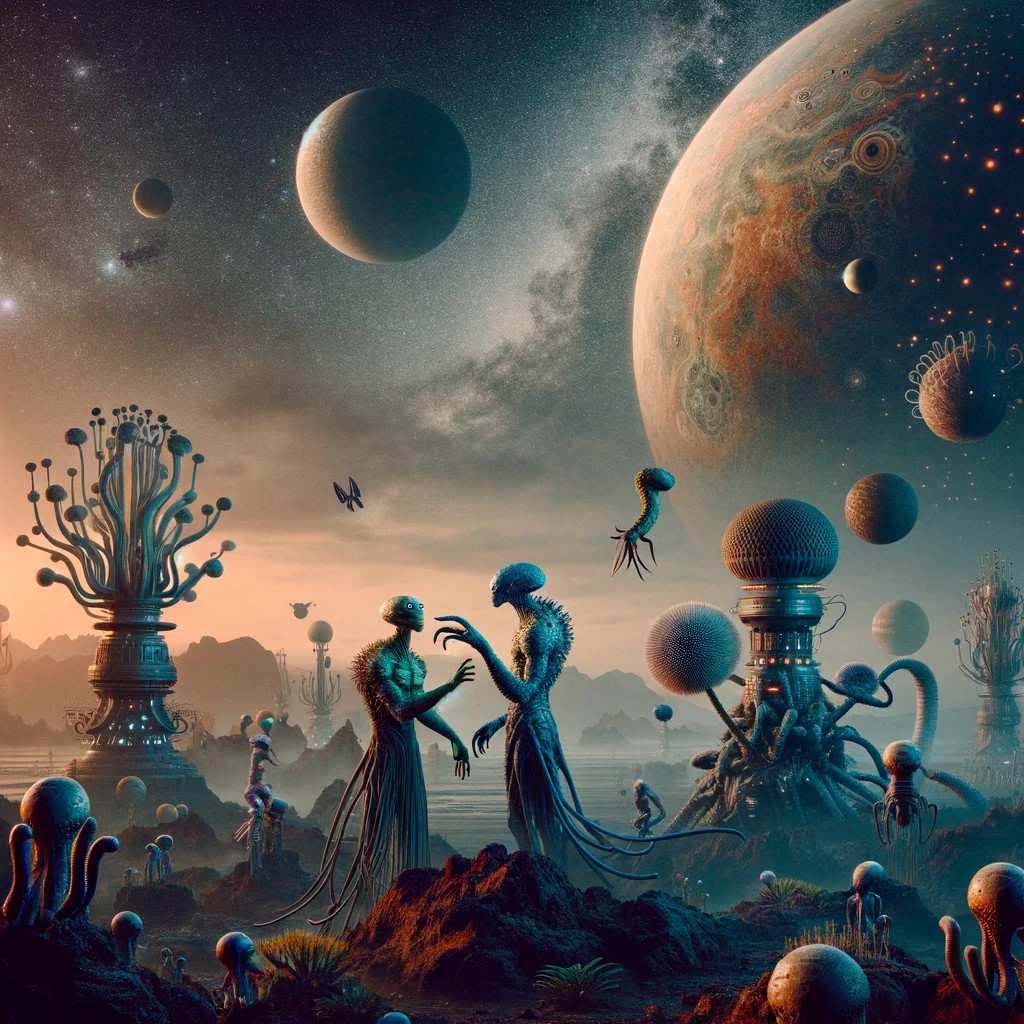In an Extraterrestrial wager reminiscent of intellectual gambles past, astrobiologist Dirk Schulze-Makuch from the Technical University of Berlin has made a spirited bet with University of London planetary scientist Ian Crawford. Their gamble? Whether within the next 15 years, compelling proof of technological extraterrestrial life will emerge. This bet, grounded in Schulze-Makuch’s Zoo Hypothesis, prompts a deeper examination of humanity’s cosmic significance and the mysteries of the universe.
Exploring the wager – Delving into extraterrestrial speculation
Schulze-Makuch’s proposition stems from a paper by Crawford published in Nature Astronomy, probing solutions to the perplexing Fermi Paradox. Central to their wager are two competing theories: either advanced extraterrestrial civilizations are exceptionally rare or non-existent, or they deliberately cloak their existence from us. While Crawford leans towards the former, Schulze-Makuch champions the latter, proposing the Zoo Hypothesis, echoing science fiction’s notion of Earth as a cosmic preserve.
Schulze-Makuch’s optimistic outlook regarding the imminent revelation of extraterrestrial life is predicated upon the reliance on technological advancements facilitating the detection of distant technosignatures. He places considerable emphasis on the rapidly accelerating pace of exoplanet discoveries, suggesting that given the current trajectory of scientific progress, humanity may soon possess the capability to remotely discern the presence of extraterrestrial intelligence. This assertion serves to underscore the paramount importance of ongoing scientific endeavors, such as the Search for Extraterrestrial Intelligence (SETI), in delving into the profound mysteries that pervade the vast expanses of the cosmos.
Contextualizing the extraterrestrial wager
While some may dismiss such speculation as frivolous, Schulze-Makuch challenges skeptics to reconcile humanity’s place in the cosmos if we are indeed alone. The bet symbolizes a convergence of scientific inquiry and existential contemplation, inviting reflection on our cosmic significance and the potential implications of encountering extraterrestrial intelligence. Regardless of the outcome, the pursuit of understanding our place in the universe remains a captivating endeavor, with the bet serving as a catalyst for both scientific exploration and philosophical reflection.
Also, the wager serves as a poignant reminder of analogous intellectual exploits, akin to the famed bet between neuroscientist Christof Koch and philosopher David Chalmers regarding the discernment of consciousness’s definitive imprint within the confines of the brain. Despite Chalmers emerging triumphant in that particular contest, the perpetual discourse surrounding consciousness and its far-reaching implications serves to underscore the intricate interplay between rigorous scientific inquiry and the nuanced realms of philosophical discourse. Similarly, Schulze-Makuch and Crawford’s wager encapsulates the inherent uncertainty and enduring allure that permeates humanity’s relentless pursuit to unravel the profound mysteries enshrouding the cosmos.
Embracing the extraterrestrial horizon
As the countdown begins for Schulze-Makuch and Crawford’s wager, the question lingers: will humanity witness the long-awaited revelation of extraterrestrial life within 15 years? This bet not only sparks scientific curiosity but also invites a broader dialogue about humanity’s place in the cosmos. Whether Schulze-Makuch’s optimism or Crawford’s skepticism proves prescient remains to be seen, but the wager itself stands as a testament to humanity’s enduring fascination with the unknown and the boundless possibilities that lie beyond our earthly realm. What if within 15 years, the elusive extraterrestrial becomes an undeniable reality? The consequences span as widely as the universe’s expansive dimensions.





